Caravan owners felt 'bullied' by holiday parks
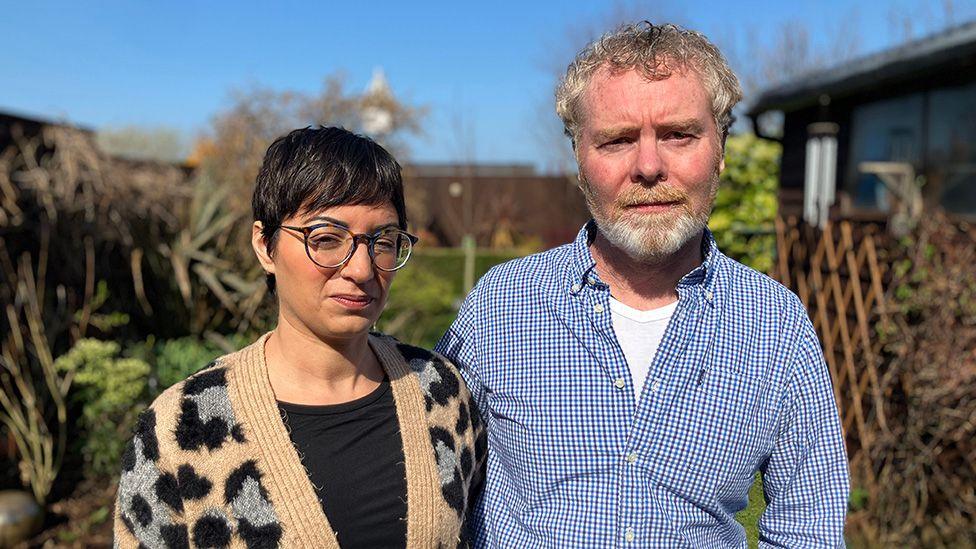
Asha and Jason Ross say they were assured they would have a good rental income for their lodge
- Published
When Asha and Jason Ross bought a caravan sited in a North Yorkshire holiday park, they thought they had made an investment which would provide them with a steady income.
However, within a few weeks, they found themselves selling the caravan back to the holiday park company which sold it to them – at a substantial loss.
And when they sought legal advice to try to recoup their losses, they say that a park employee made veiled threats to them.
The Rosses are among about 800 people who contacted BBC News, following our report on a lawsuit brought by caravan owners against allegedly unfair practices by holiday parks.
The claims we heard, included:
Misleading claims from sales staff about potential income from the caravan
Site fees which holiday parks increased steeply and allegedly without warning
Feeling pressured to sell caravans back to parks at a loss, and for significantly less than their market value
'We know where you are'
Mr and Mrs Ross were looking for an investment opportunity, and thought they'd found the perfect solution when they came across Malton Grange Country Park, a static caravan site in North Yorkshire.
They bought a lodge – a deluxe static caravan - for £125,000 from the site owner, Prestige Country Parks. They say they were told that it had come up for sale because the previous owner had died.
The Rosses say the company's sales manager, Patrick O'Donovan, assured them they could make a good income from renting out the lodge.
They also saw social media posts from Prestige, claiming investors could make £1,000 per week this way, and that the lodge would appreciate in value, like a house.
Yet the advice given by industry bodies such as the National Caravan Council (NCC), is that buyers should treat a caravan as a "depreciating asset" which will fall in value over time.
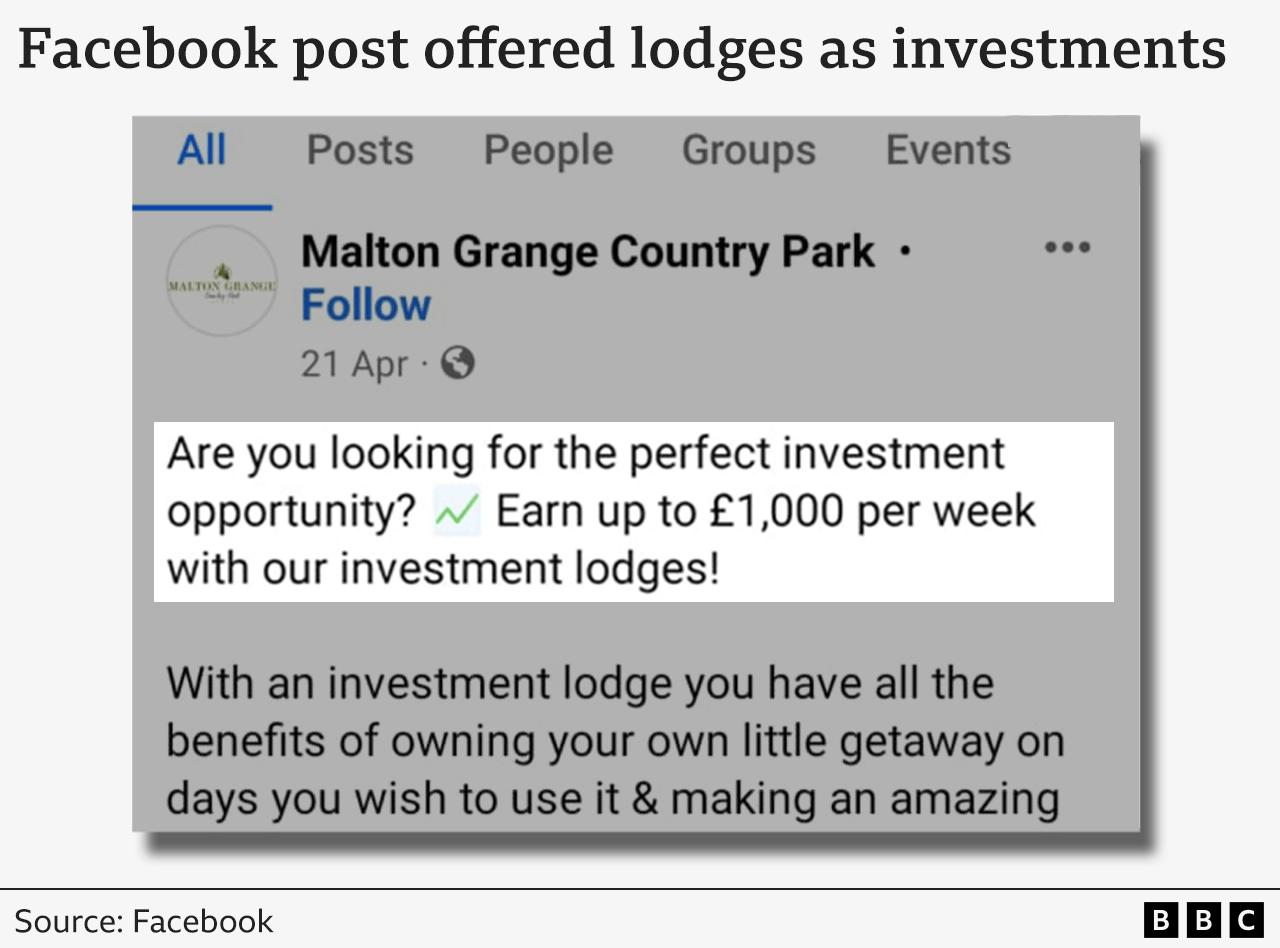
After six weeks, the Rosses had only received two bookings, totalling £180.
They decided to abandon their plan, and asked the park to buy the lodge back. Mr Ross says that the park owner eventually agreed a price below what the Rosses had originally paid.
The couple say their financial loss was "huge", but they are too embarrassed to admit how much it was.
"You feel, you feel ashamed, you feel stupid," says Mrs Ross.
When the couple decided to seek legal advice about recouping their losses, Mr Ross received – and recorded - a call from Mr O'Donovan, who was abusive and swore at them.
He issued what the couple interpreted as a veiled threat: "We know where you are, don't we?"
Jason and Asha Ross recorded a phone call from Pat O'Donovan which left them feeling disturbed
Mrs Ross said the phone call left her feeling shaken: "You start thinking who are we actually dealing with here and how dangerous are they?"
When we looked further into this case, we also found out that the previous lodge owner had not died, as the Rosses say Mr O'Donovan claimed.
His name was – and is - Paul Gordon. When we tracked him down, he alleged a similar experience to that of the Rosses - being left with no choice but to sell his caravan at a loss.
Mr Gordon says he paid £140,000 for the same lodge in May 2021. But after 16 months he decided the site wasn't for him and sold the lodge back to Prestige for £70,000.

Jason and Asha Ross bought their lodge for £125,000 but made a "huge" loss on its sale
The BBC has consulted industry insiders and estimated that this one lodge may have returned a profit for the company of about £180,000 in less than five years.
Prestige has told the BBC that it does not condone any form of unprofessional or threatening conduct and is investigating the phone call and the information provided about previous ownership.
It says that the price offered was because the company was overstocked, and the couple wanted a quick sale. It also says it told them that rental income was not guaranteed and that six weeks was a short time to generate consistent bookings.
'An unregulated sector'
"The holiday park sector... is essentially an unregulated sector," says Hugh Preston KC, a lawyer currently representing a group of about 1,200 caravan owners taking legal action against holiday parks.
If a caravan or lodge in England is used as a permanent residence, then its owners are covered by the Mobile Home Act 1983, external, which gives them tenancy rights. Similar rules apply elsewhere in the United Kingdom.
However, if a static caravan is a holiday home, any agreement between its buyer and a caravan site is covered by private contract law, which is much looser.
Many buyers face problems because they will not have studied the small print on their contract with the holiday park, according to second-hand caravan dealer Peter Preidel.
A contract can often allow a park to "do what it wants, when it wants", he says, and can charge the buyer "what it wants, when it wants". The buyer, he adds, has no redress against this.
Holiday Parks Exposed
Allegations of over-charging, threats and intimidation. Just how far will some companies go to make a profit in the holiday park industry?
Site fees
A further way this power can be used is to hike site fees for the caravan.
In 2019, Mark and Sandra Thompson from Coventry bought a static caravan at Allerthorpe Golf and Country Park near York. The price was £66,000 including decking.
Their annual site fees were free for the first year, and then £3,995. But in just three years, Mr Thompson says they were facing a demand for £7,000.
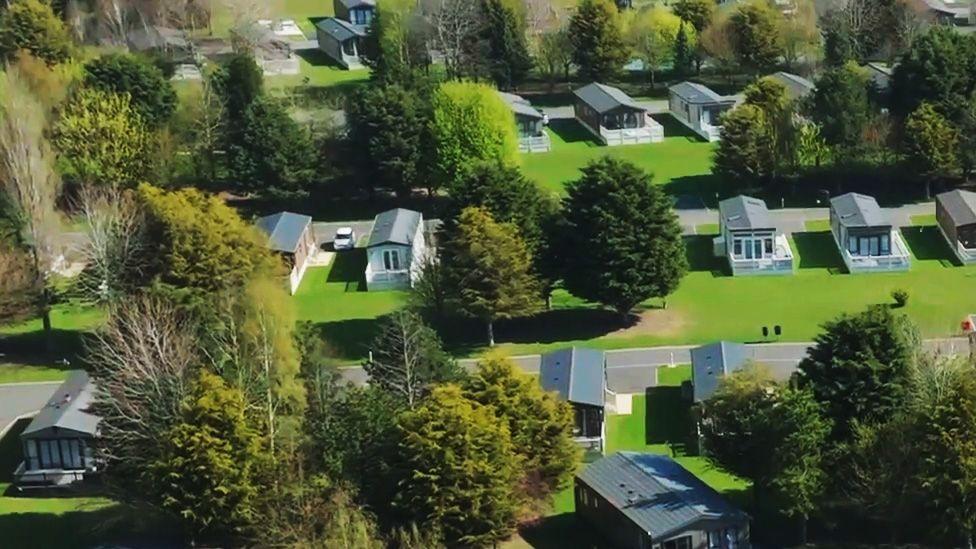
Allerthorpe Golf and Country Club near York
"I did feel bullied in the end," Mr Thompson said. "I just felt it wasn't worth it. It wasn't worth all the hassle and the arguments and the stress that it was causing."
It's a feeling former owners from other parks recognise.
The BBC interviewed one who said they felt bullied when a park company forced them to replace their wooden decking with plastic, at a cost of £20,000.
"It wasn't a case of you could get another contractor in and ask them for a price," he said. "It was a case of 'we are going to do it' and you had no [other] option."
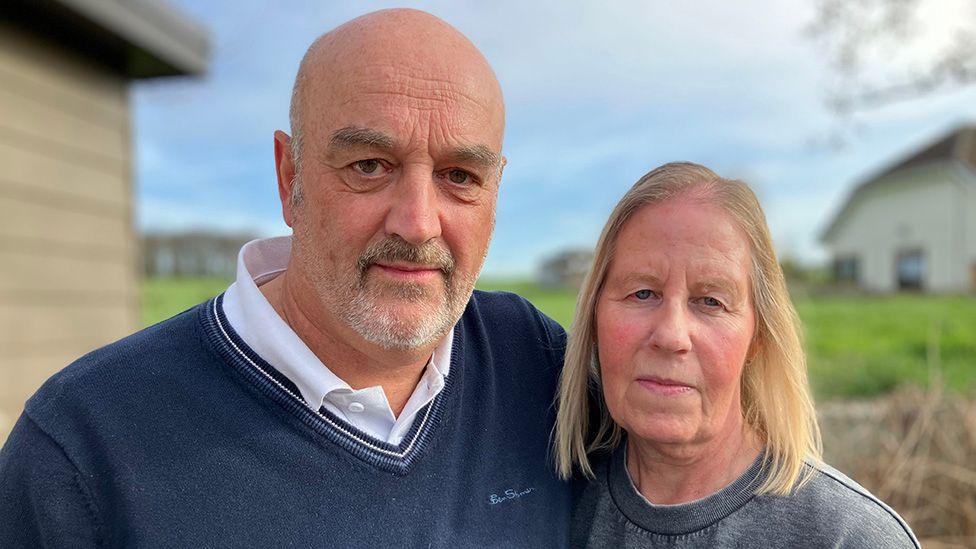
Mark and Sandra Thompson were devastated to see their caravan on the market for £110,000, having sold it for £23,000
In September 2024, the Thompsons asked the site to buy back their lodge.
The sales manager offered £23,000 – little more than a third of what they had paid.
Mrs Thompson said they had no choice but to accept: "I just said, yeah, let's move on. It is making you ill."
But soon after leaving, they were shocked to see their lodge back up for sale, in exactly the same lakeside spot, for £110,000 - £87,000 more than they'd been paid for it.
"We were devastated because we'd taken a mortgage out for this holiday home, so we still have to pay the mortgage off," says Mrs Thompson.
To see how honest the parks were being with potential new customers, our team posed as a family interested in buying the Thompsons' former lodge, and recorded the conversation.
BBC reporters posing as potential buyers quiz a caravan salesman on how much the Thompsons' lodge is worth
A salesman offered to sell the caravan for £90,000 including the first year's site fees – nearly £70,000 more than the Thompsons had received for it.
He also said that site fees would only ever rise by the rate of inflation, and that the park couldn't "just put them up to £7,000" - even though this is exactly what they had planned to do, according to the Thompsons and others from the site the BBC has spoken to.
Allerthorpe Golf and Country Park says site fee increases "reflect the growing cost of operations" and "the significantly enhanced offering".
It strongly rejects any suggestion of deception, saying "the final decision on whether a caravan remains on park is a business and operational matter and the listing price reflects significant upgrades and premium location, not simply the original unit value".
We also heard from Vivian Vincent who – with her late husband, James - bought a lodge at Far Grange Holiday Park on the East Yorkshire coast in 2010, for £80,000.
After her husband's death in 2023, Mrs Vincent decided to sell. The park owner, Haven, offered to buy the lodge back for £26,500.
It wasn't long before Mrs Vincent saw her lodge being readvertised in a Haven sales video: "I gave them the keys, and two days later they put it up for £74,999, which absolutely devastated me. I've been in business, and I understand you have to make money, but this isn't right."
In response, a Haven spokesman said the company was sorry Mrs Vincent felt she had been treated badly, and that it was always the company's intention to treat owners fairly, and with transparency. The spokesman added that the sale price of the lodge was considerably lower than implied in the sales video.
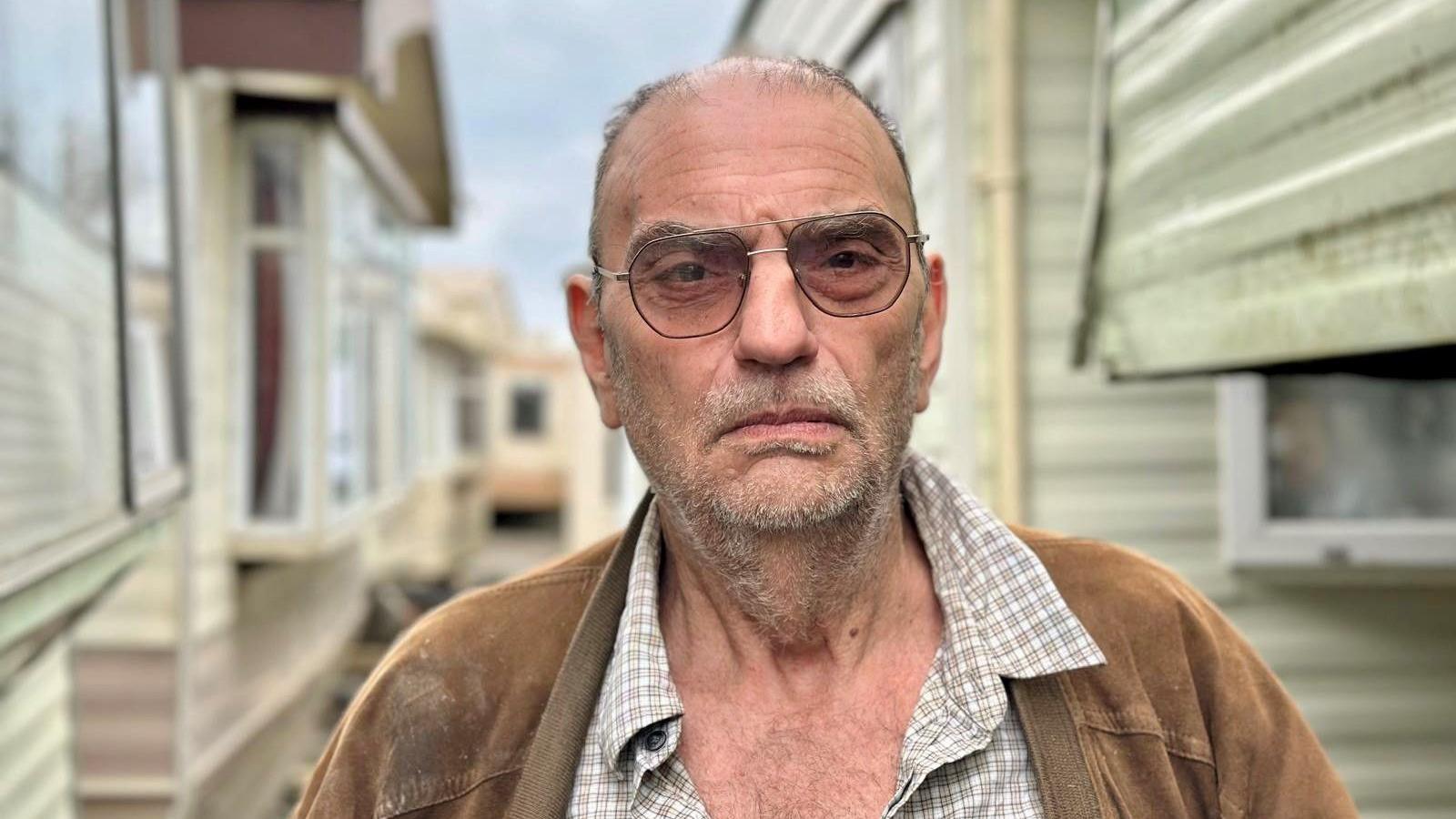
Caravan dealer Peter Preidel describes the holiday park industry as "cut-throat"
Speaking about the industry generally, Peter Preidel says that selling caravans is how holiday parks make most of their money, and that hiking up site fees is a way of pressurising caravan owners to sell back to them.
"The parks can only sell as many caravans as they've got bases for," he says. "These days a lot of people will pay cash for [caravans] outright, and as soon as they have, the park would actually quite like [the buyer] to go, so they've got another base to sell again."
He adds: "I know this sounds cut-throat and well, basically it is cut-throat."
The NCC told us they were saddened to hear that some holiday caravan owners felt let down by the industry.
It advises buyers to research their purchase and carefully read contracts before signing.
Get in touch
Do you have a story to share with the BBC Yorkshire & Lincolnshire investigations team?